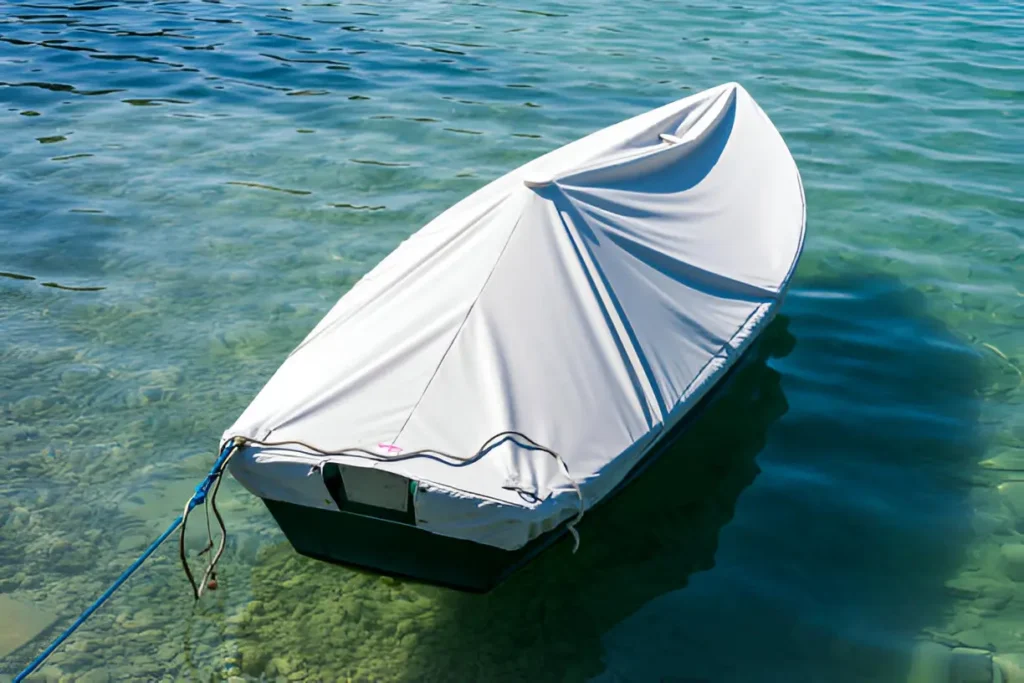Introduction to Fishing Boat Covers
Boat covers are crucial for all boaters who want to safeguard their investment and improve their time on the water. These covers protect your boat from the elements and contribute to your craft’s overall longevity and performance. High-quality fishing boat covers are vital in maintaining the value and functionality of your vessel, ensuring every voyage starts smoothly and ends safely. Without proper protection, boats are susceptible to environmental hazards, which can result in long-term damage and costly repairs.
Why You Need a Fishing Boat Cover
Picture this: you’ve spent a sunny afternoon on the water, but as you head home, a sudden downpour looms. A quality fishing boat cover can shield your boat from adverse weather conditions, reducing potential damage and wear. This protection doesn’t just save your boat from immediate harm but mitigates the long-term degradation caused by continual exposure to sun, wind, and rain. According to BoatUS, a leading authority in boating safety and education, proper coverage can prevent costly repairs, ultimately allowing you to enjoy your boating experience without worrying about constant maintenance.
Preserves the Integrity of Your Boat
Extended exposure to sunlight, precipitation, and other environmental factors can damage your boat considerably. This deterioration impacts both the visual attractiveness and the overall strength of the ship. Cracks in the seats, faded paint, and rust are possible consequences of neglecting proper cover usage. Research from the U.S. Coast Guard Boating Safety Division indicates that regular and adequate protection can significantly extend your boat’s life. Having a cover that fits well and is suited to your specific needs provides peace of mind, knowing your boat is safe and ready for the next adventure.
Different Types of Boat Covers
Various types of boat covers are available to suit different types of vessels and user needs. Understanding these choices can help you make a well-informed decision that aligns with your specific needs.
- Mooring Covers: These covers protect your boat while stationary in the water or docked. They are often made from heavy-duty materials and are meant to withstand prolonged exposure to the elements.
- Trailerable Covers: Built for boats that are frequently transported, these covers provide robust protection while on the move. They are designed to stay secure during high-speed travel, shielding your boat from road debris and adverse weather conditions.
- Custom-Fit Covers: These covers are tailored specifically to your boat’s dimensions, offering the best protection and snug fit. They ensure no area of your boat is exposed, providing comprehensive protection and reducing the risk of wind damage.
Choosing the right type of cover can significantly enhance the protection your boat receives, ensuring it stays in peak condition for years to come.
Selecting a Boat Cover
Selecting the right boat cover involves considering several critical factors. Understanding these can help you make a more informed choice that meets your needs.
- Material: Opt for durable, water-resistant fabrics that withstand various weather conditions. High-quality materials such as polyester or acrylic provide excellent durability and protection against the elements.
- Fit: Ensure the cover fits your boat precisely to provide comprehensive protection. A well-fitting cover prevents water from pooling and debris from collecting, effectively safeguarding your boat.
- Ventilation: Adequate ventilation prevents mold and mildew buildup, keeping your boat fresh and clean. Some covers come with built-in vents to enhance airflow and minimize moisture buildup inside the cover.
Considering these factors ensures you choose a cover that offers the best protection and convenience for your boating lifestyle.
Benefits of Using a Quality Boat Cover
Investing in a high-quality boat cover can result in numerous benefits that enhance your boating experience:
- Cost Savings: Protecting your boat from damage helps reduce the need for expensive repairs. A top-notch cover can prevent costly repairs by protecting against different weather conditions, potentially saving you a significant amount of money.
- Extended Lifespan: Regular use of a boat cover can add years to your boat’s life. Protection from UV rays, moisture, and debris helps maintain the boat’s structural integrity and appearance, ensuring it remains functional and attractive over time.
- Enhanced Resale Value: A well-maintained boat holds its value better, making it easier to sell if you decide to upgrade. By protecting your boat, you preserve its resale value, which can be a significant financial advantage when it comes time to part ways with your vessel.
Quality covers not only protect your boat but also enhance your overall boating experience by ensuring your vessel remains in top condition.
Maintenance Tips for Boat Covers
To ensure your boat cover remains effective, follow these maintenance tips:
- Regular Cleaning: Clean your cover periodically to prevent dirt and debris buildup. Mild soap and water are usually sufficient to clean most covers, but always follow the manufacturer’s instructions.
- Proper Storage: Store your cover in a cool, dry place when not in use to avoid mold and mildew. Consider using a storage bag to protect it from dust and pests.
- Check for Damage: Inspect your cover for tears and wear, repairing any issues promptly. Small tears can often be patched up, preventing them from growing into more significant problems that could compromise the cover’s effectiveness.
Regular maintenance not only extends the life of your boat cover but also ensures it continues to provide optimal protection for your boat.
Conclusion
Fishing boat covers are a worthwhile investment for any boat owner. They provide vital protection against the elements, extend the lifespan of your vessel, and can save you significant costs in repairs and maintenance. By choosing the right cover and maintaining it properly, you can ensure many enjoyable years on the water. Ultimately, a well-protected boat means more time spent fishing and less time worrying about potential damage, allowing you to focus on what truly matters—enjoying your time on the water.
Also Read – How Online Therapy Can Help You Overcome Loneliness
